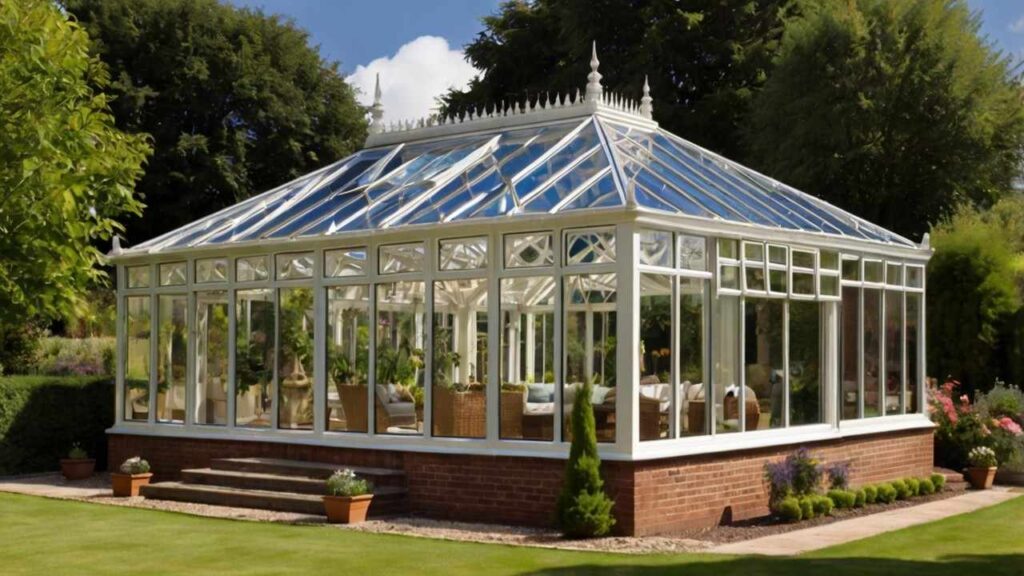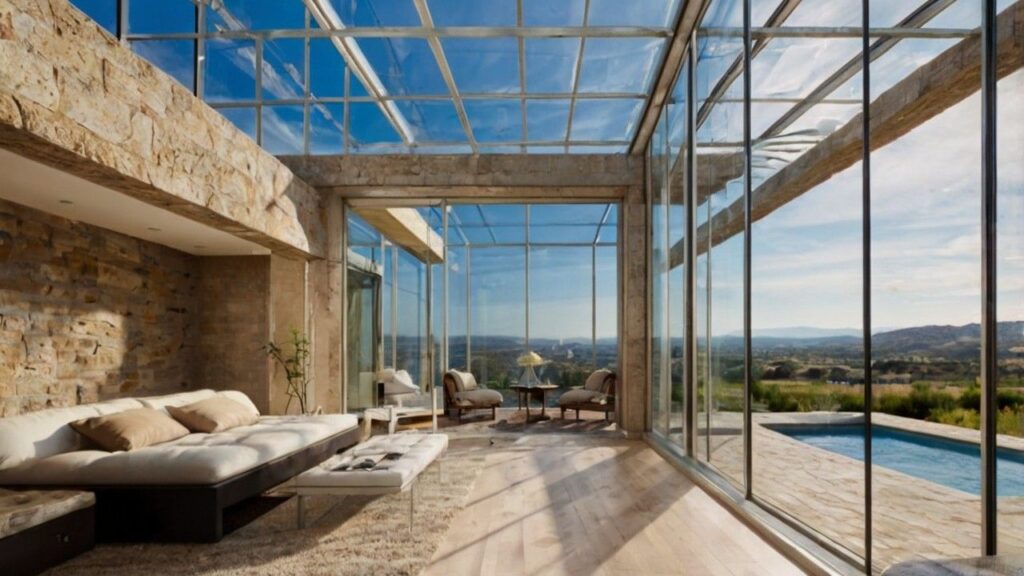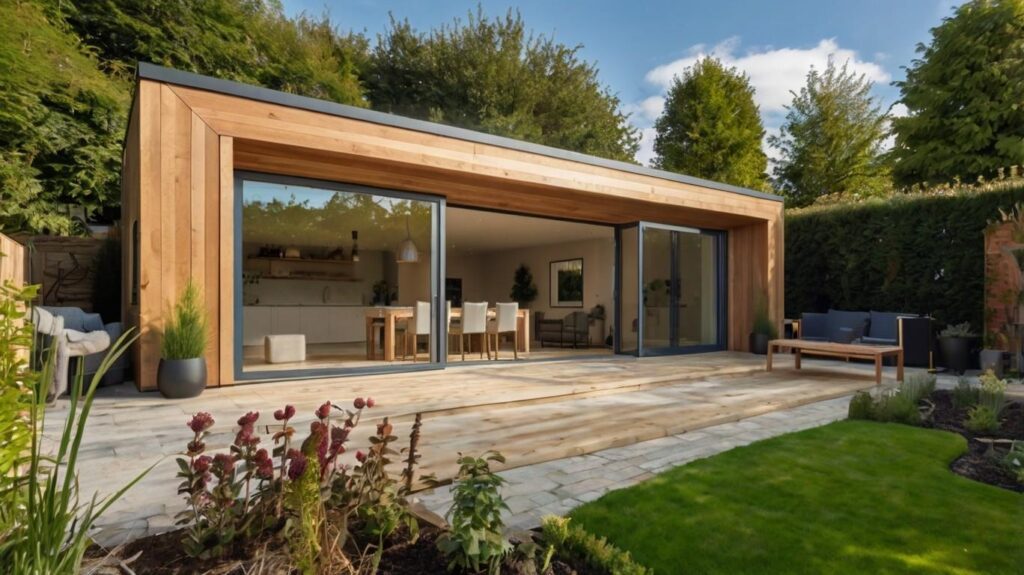UK’s Top Conservatory Cost Factors: Materials, Installation, and Budget-Friendly Options
Summary: A basic conservatory costs around £10,000 in 2024. Bigger or fancier designs can cost up to £40,000. Most people spend between £15,000 and £25,000 on their conservatory. The final price depends on size, style, and materials. You’ll need extra money for heating and furniture.
Want to add more space to your home? A conservatory might be perfect for you. It’s like adding a glass room to your house. You can use it all year round. But before you start, you need to know the conservatory costs. This guide will help you understand all the prices. We’ll show you how to get the best value for your money.
Why Should You Listen to Us?
Our UK-based team helped over 1M homeowners save up to 40% on home improvement quotes since 2006. By using our free no-obligation quote comparison service, you will receive the most competitive quotes from vetted and accredited local companies.
Understanding Conservatory Costs and Size
Choosing the right size for your conservatory is the first step in planning your budget. The size you pick will affect everything from planning permission to heating costs. Your available garden space and house size should guide your decision. According to the Real Homes home extension guidelines, a well-planned conservatory should take up no more than 30% of your available garden space.
Popular Sizes and Their Costs
Small conservatories cost between £7,000 and £12,000 to build. Medium builds usually cost £12,000 to £20,000. Large conservatories can cost upward of £20,000. Extra-large builds might reach £40,000 or more. Your location affects these prices too.
Types of Conservatories and Their Costs
Understanding different conservatory design helps you make the best choice for your home. Each style has its own benefits and price range. The right choice depends on your house style and personal taste.
Lean-to Conservatories
The lean-to style is the cheapest type of conservatory you can buy. Prices for a lean-to start at £10,000. Most people pay about £12,000 for a complete build. This style works well for small homes and tight spaces. The simple design keeps conservatory costs down and makes building easier.
Victorian Style
Victorian conservatories cost start at £15,000 for a basic design. Most homeowners spend around £20,000 for a complete build. The Victorian style has a rounded shape that many people love. This design fits well with most UK homes. The traditional look adds charm to any property.
Edwardian Style
An Edwardian conservatory starts at £16,000 for the basic version. The average conservatory cost comes to about £22,000 when fully built. This style has a square shape that makes the space very useful. You can fit more furniture in an Edwardian conservatory. The design works well for dining rooms or living spaces.
Thoroughly Vetted Professionals
Every supplier in our network goes through a strict vetting process, including credit checks and accreditation verification.
More Style Options
Beyond basic designs, several unique conservatory styles can make your home stand out. These special designs offer more space and flexibility in how you use them. They often conservatory cost more but can add significant value to your property.
P-Shaped Conservatories
P-shaped designs combine two different conservatory styles. These larger builds start at £15,000 for basic versions. Most P-shaped conservatories cost around £24,000 to complete. This style gives you two separate areas. Many people use one space for dining.
T-Shaped Designs
T-shaped conservatories create a striking garden feature. Prices begin at £20,000 for this complex design. Most builds conservatory cost between £25,000 and £35,000. This style suits larger houses best. The design creates three distinct areas.
What Different Materials Cost
The materials you choose will affect both the price and longevity of your conservatory. Different materials need different levels of maintenance over time. Your local climate should influence your material choice.
UPVC (Plastic)
UPVC is the cheapest material for building a conservatory. A UPVC conservatory costs between £10,000 and £20,000. This material is very easy to keep clean. Your UPVC conservatory should last about 20 years. You can choose white or coloured frames to match your house.
Aluminium
Aluminium offers a mid-range price for conservatory builds. An aluminium conservatory costs between £15,000 and £30,000. The material won’t rust or rot over time. The frames are thinner than UPVC options. Aluminium gives your conservatory a modern, clean look.
Wood
Wooden conservatories cost the most to build and maintain. Prices start from £20,000 and can reach £50,000. The natural wood gives a luxury feel to your home. Your wooden conservatory needs regular care to stay looking good. With proper care, wood can last for many decades.
Smart Technology Options
Modern conservatories can benefit from the latest technology advances. Smart features can make your conservatory more comfortable and efficient. These additions conservatory cost extra but often pay for themselves through energy savings.
Automatic Ventilation
Smart vents can open and close by themselves. The system conservatory costs about £1,000 to install. It helps control the temperature automatically. Your conservatory stays comfortable all year. The vents respond to rain and temperature.
Smart Glass Options
Temperature-responsive glass changes throughout the day. This special glass costs about £3,500 to install. It keeps heat out during summer months. The glass lets warmth in during winter. Energy bills stay lower with smart glass.
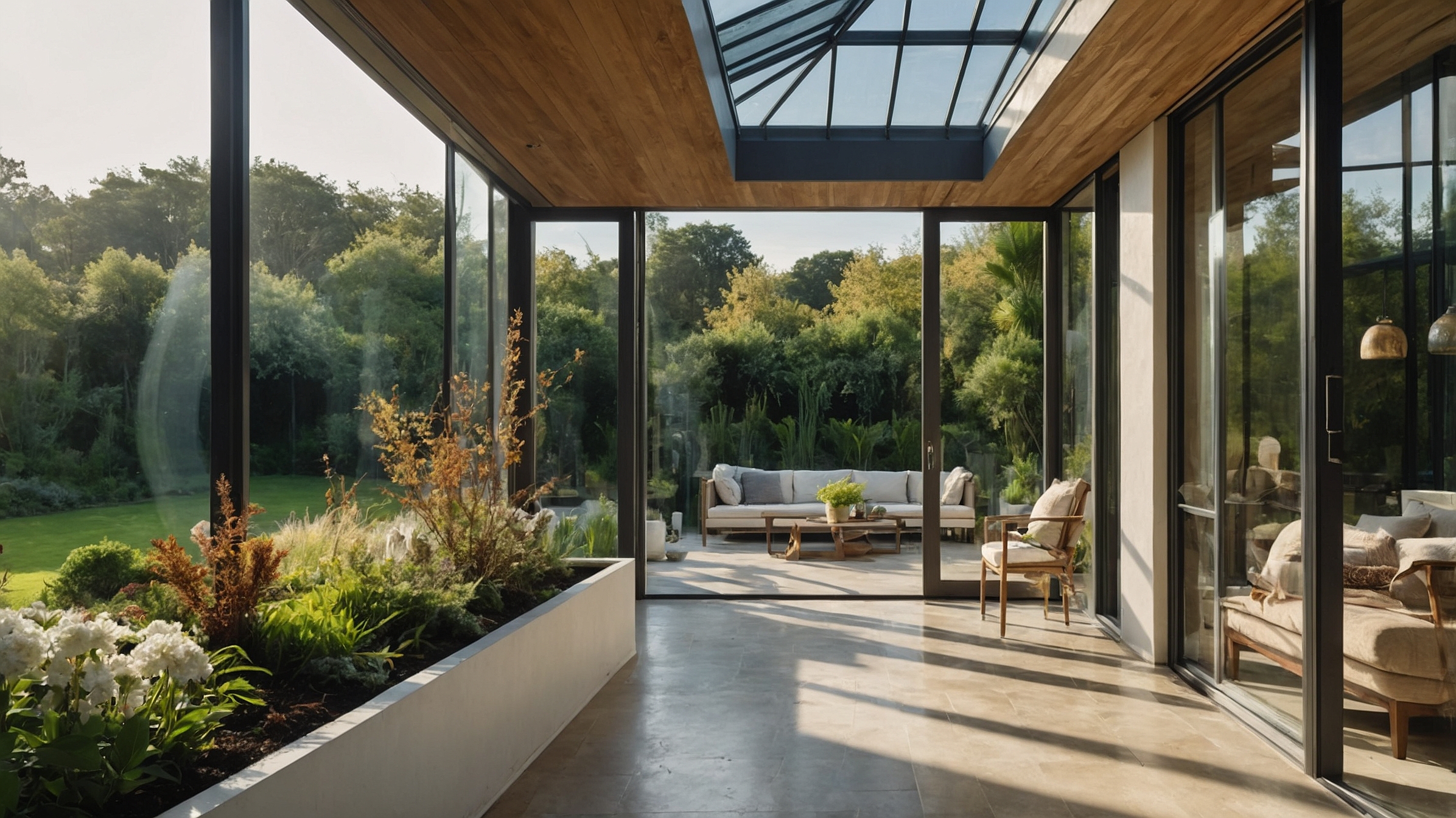
Extra Conservatory Costs You Need to Know
Building a conservatory involves more than just the basic structure price. Many homeowners forget to budget for essential extras and finishing touches. Understanding these additional conservatory costs helps you plan better.
Ground Work
Every conservatory needs strong foundations to stay safe. Basic ground work usually conservatory costs around £3,000. Sites with slopes or access problems conservatory cost more to prepare. Your builder might need to fix drainage issues first. Good foundations prevent problems in the future.
Windows and Glass
Standard double glazing starts at £1,500 for a small conservatory. Special solar glass costs more at around £2,500. Self-cleaning glass is the most expensive at £3,000. Most builders use double glazing as standard now. Better glass helps control temperature all year round.
Heating and Cooling
Underfloor heating costs about £1,500 to install. Adding air conditioning costs around £2,000. Each roof vent will cost about £500 to fit. Good airflow keeps your conservatory comfortable. Heating helps you use the space in winter months.
Seasonal Considerations
Your conservatory’s usability changes with the seasons. Good design choices help make the space comfortable all year round. Planning for all weather conditions will improve your enjoyment of the space.
Summer Benefits
Summer use needs good ventilation systems in place. Light-controlling glass helps prevent overheating. Opening windows help create cooling airflow. Blinds or shades protect from strong sun. Good planning prevents summer discomfort.
Winter Preparations
Winter months need proper heating solutions installed. Double glazing keeps the cold air outside. Floor insulation prevents heat loss through the ground. Roof insulation matters more in winter. Proper seals prevent cold drafts.
Rules and Permissions
Building regulations ensure your conservatory is safe and legal. Understanding these rules early helps avoid problems later. Most conservatories need to meet specific building standards. Check the UK Government’s Planning Portal conservatory guidelines for detailed information about current regulations.
Planning Rules
Most small conservatories don’t need special planning permission from your council. Larger builds will need approval before you can start work. Special rules apply if you live in a listed building. Your local council can tell you what’s allowed. Getting permission takes about eight weeks.
Building Rules
A building safety check will conservatory cost around £500 for your conservatory. Your builder must follow rules about heating efficiency standards. Fire safety is an important part of the building rules. The foundations must meet specific safety requirements. A building inspector will check all the work.
Save Money on Your Conservatory
Smart planning can help reduce the total cost of your conservatory project. Timing and choice of materials make a big difference to the final price. There are several ways to get better value without compromising quality.
Best Time to Build
Winter is often cheaper for building a conservatory. You could save up to 20% by choosing off-season dates. Many companies offer deals in quieter months. Different builders will give you different prices. Some companies have seasonal sales worth waiting for.
DIY or Professional
A DIY conservatory kit starts from £3,000 for basic models. Professional fitting adds about £5,000 to your total conservatory cost. You need good building skills for DIY projects. A DIY build takes longer than professional installation. Your warranty might not cover DIY installation.
Accredited Professionals, thoroughly vetted through reference and credit checks. Registered with self-certification schemes, guaranteeing high standards of workmanship.
Yearly Costs
Upkeep Costs
UPVC conservatories need about £100 per year for maintenance. Aluminium frames cost about £200 yearly to maintain properly. Wooden conservatories need around £400 each year for care. Regular window cleaning keeps everything looking nice. Replace any damaged seals straight away.
Energy Bills
Good quality glass helps keep energy bills lower. Proper heating systems make the space comfortable year-round. Summer months might need extra cooling equipment. Winter heating will add to your energy bills. Energy-efficient options save money over time.
Adding Value to Your Home
House Value
A conservatory typically adds 5% to your house value. Good design choices make the space more valuable. Quality installation matters when selling your house. The style should match your existing property perfectly. Future buyers often look for extra living space.
Save on Bills
Good insulation helps reduce your monthly bills. Solar control glass keeps the heat manageable. You’ll need less heating with proper installation. Summer cooling costs less with the right glass. Long-term savings can be quite significant.
Hidden Costs to Watch
Site Work
Your garden might need clearing before work starts. Uneven ground needs leveling before building can begin. New drainage systems might be necessary. Some sites need existing pipes moved. Garden repairs add extra conservatory costs afterward.
Final Touches
New flooring adds to your final bill. Light fixtures cost extra to install. Window blinds are usually necessary for comfort. You’ll need furniture for the new space. Decoration costs come after the build finishes.
Save Up to 40% on Your Project
Focus on competitive pricing could save up to 40% and these savings might allow you to choose higher-quality materials or add extra features.
Design Features to Consider
The right design features can make your conservatory more enjoyable to use. Small details can have a big impact on how the space works. Careful planning of these features helps avoid regrets later.
Roof Choices
Glass roofs let in maximum natural light. Solid roofs provide better temperature control. Mixed roofs offer the benefits of both. Different roof styles affect the final price. Most roofs of conservatory cost between £2,000 and £5,000.
Door Options
French doors suit traditional conservatory styles best. Sliding doors work well in modern designs. Bi-fold doors cost more but open fully. Door prices range from £1,500 to £3,000. Security features add to door costs.
Professional Installation Benefits
Professional installation might cost more, but it offers important advantages. Experts bring valuable experience and guarantees to your project. Their knowledge helps avoid common problems and delays. The Federation of Master Builders find a builder service can help you locate certified conservatory installers in your area.
Expert Knowledge
Professional installers understand building regulations perfectly. They can spot potential problems early. Their experience prevents costly mistakes. They work faster than DIY builders. They have proper insurance coverage.
Quality Guarantees
Professional installation includes work guarantees. Warranties protect your investment long-term. Certified installers offer better protection. Their work meets safety standards. Problems get fixed at no extra cost.
Making Your Choice
Finding Builders
Local builders often offer the best value. Ask friends about their conservatory experiences. Check online reviews for building companies. Visit local showrooms to see examples. Talk to at least three different companies.
Choosing Materials
Pick materials that match your house style. Think about how long materials will last. Consider your local weather conditions. Look at maintenance needs for each option. Compare prices between different materials carefully.
What to Ask Builders
Important Questions
Ask about the total project time. Get details about the warranty coverage. Find out about after-care services. Check what the price includes exactly. Ask about payment schedules and deposits.
Getting Quotes
Write down everything you want included. Compare the same features across different quotes. Ask about price matching between companies. Get all quotes in writing before deciding. Check how long each quote remains valid.
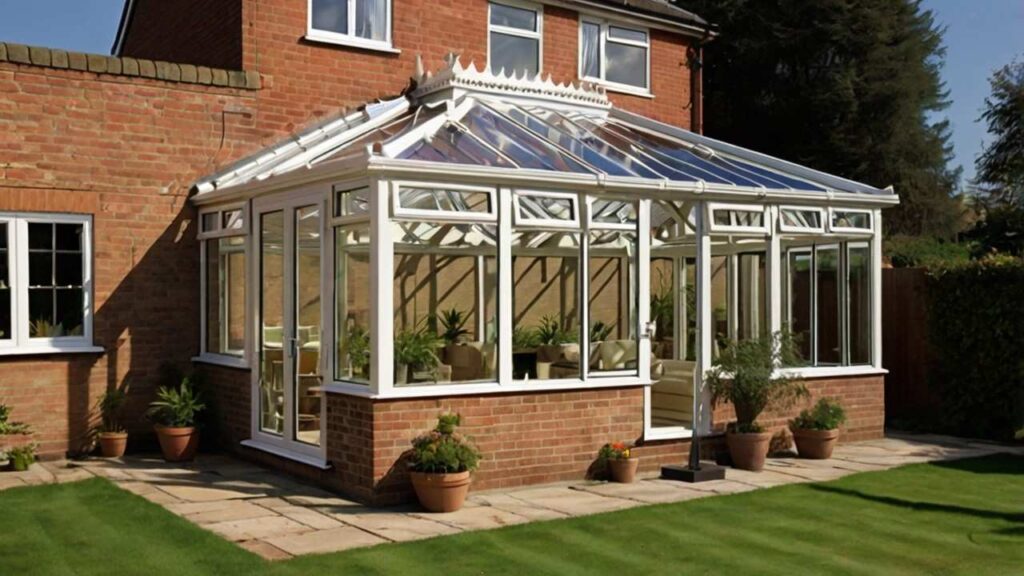
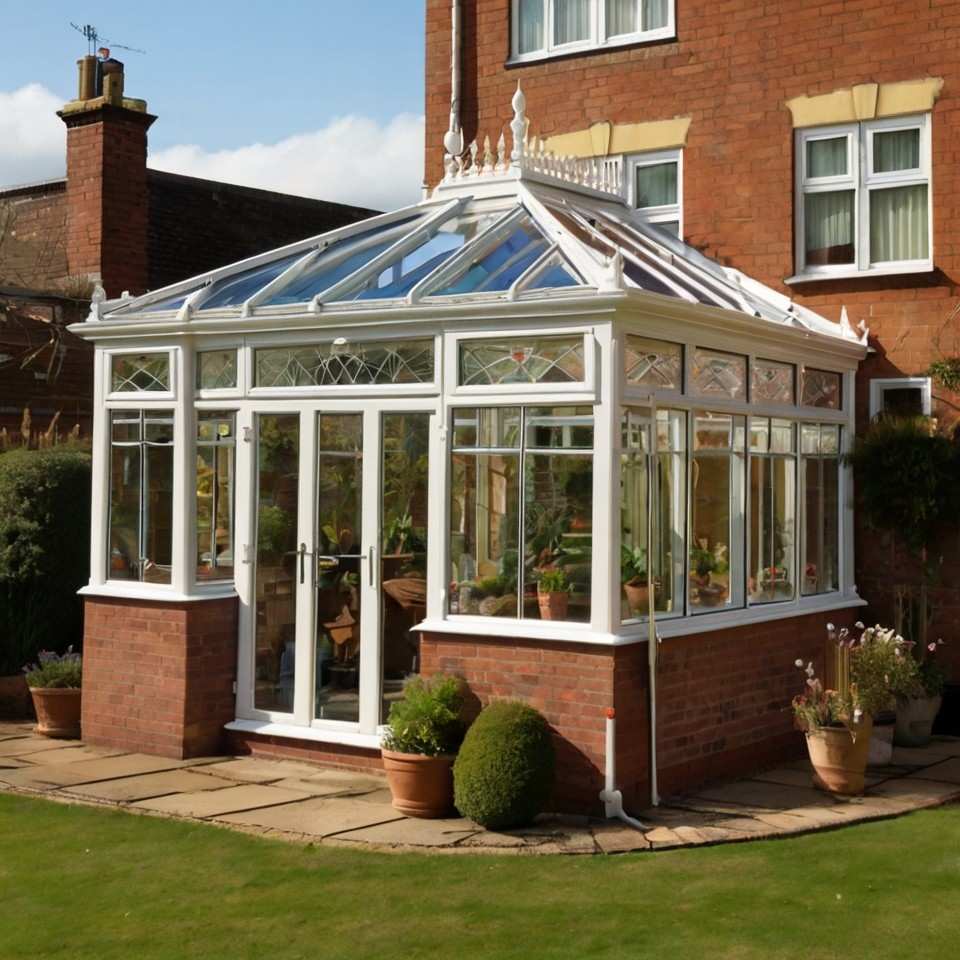
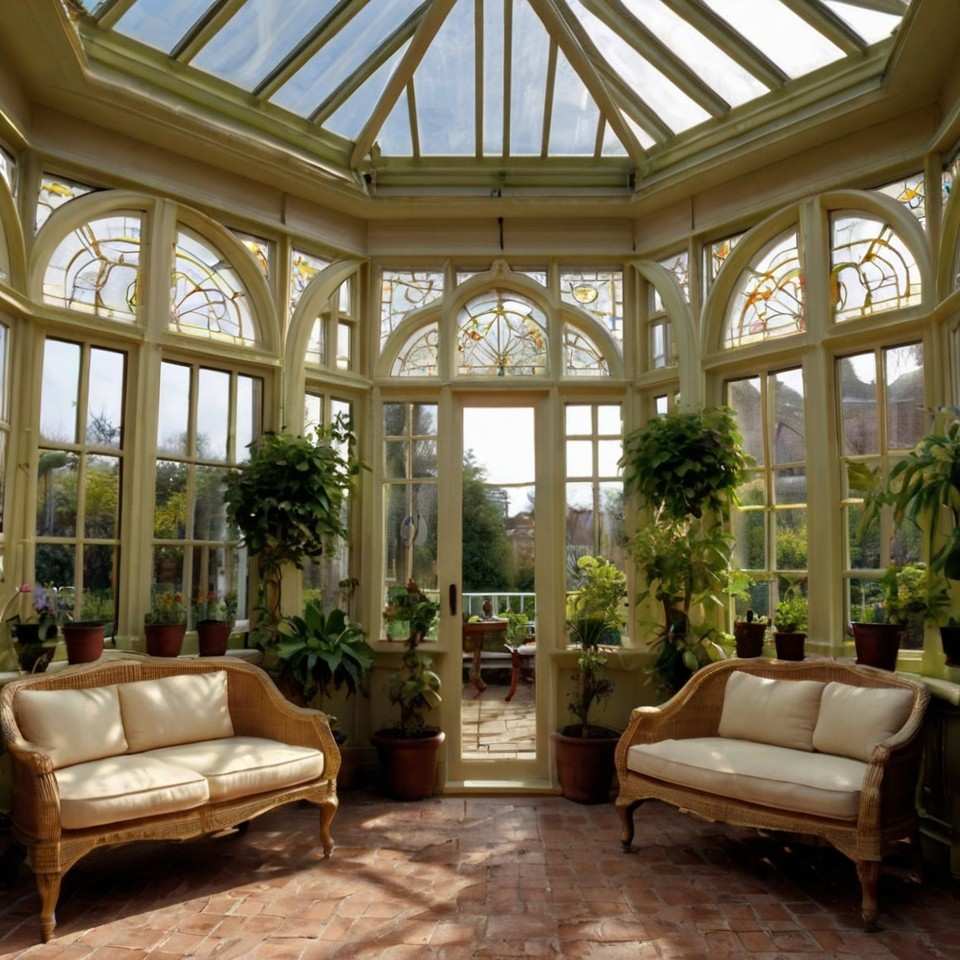
Common Questions About Costs
Many homeowners share the same concerns about conservatory costs. Understanding typical price variations helps you budget more accurately. Local factors can significantly affect your final price.
Price Variations
Different regions have different average prices. City installations often cost more than rural ones. Some materials cost more in certain areas. Labour costs vary by location. Local competition affects final prices.
Payment Options
Many builders offer payment plans for larger projects. Deposits usually range from 10% to 25%. Stage payments help spread the cost. Some companies provide finance options. Always check interest rates carefully.
Making It Affordable
Building a conservatory doesn’t have to strain your finances. Several approaches can help make the project more affordable. Good planning and careful choices help manage conservatory costs effectively.
Budget Planning
Save money before starting your project. Plan for about 10% extra in contingency funds. Compare finance options from different providers. Think about long-term running costs too. Consider future maintenance expenses.
Value Options
Basic designs can still look attractive. Simple shapes cost less to build. Standard materials work well for most homes. Regular sizes keep conservatory costs down. Ready-made designs save money.
Final Thoughts: A conservatory can cost between £10,000 and £40,000. Basic ones start at £10,000. Most people spend about £20,000. Remember to add extra costs for floors and heating. Get three quotes before you choose. Pick a style that matches your house. Good planning helps avoid surprise costs later.
Do I need planning permission for a conservatory?
Glass roofs and lantern roofs are the best options for maximizing natural light in your conservatory.
What’s the cheapest type of conservatory I can build?
A lean-to conservatory is the most affordable option. Small lean-to designs with UPVC frames start from £10,000. This includes basic installation and standard double glazing.
How long does it take to build a conservatory?
A standard conservatory usually takes 3-4 weeks to complete. This includes one week for foundations, one week for building, and additional time for interior finishing and inspections.
Which conservatory material lasts the longest?
Aluminium conservatories typically last 25-30 years with minimal maintenance. While more expensive than UPVC, they don’t fade or discolour. The material resists rust and warping.
Can I use my conservatory all year round?
Yes, with proper insulation and temperature control. Modern double glazing, underfloor heating, and good ventilation make conservatories comfortable in all seasons. Smart glass helps control temperature.
What’s the most energy-efficient type of conservatory?
A solid-roof conservatory with double-glazed walls offers the best energy efficiency. Adding underfloor heating and temperature-controlled glass helps reduce energy costs throughout the year.
Will a conservatory add value to my house?
A well-built conservatory typically adds 5-10% to your home’s value. Quality materials and professional installation make the biggest difference. The style should match your house.
What’s the minimum deposit for a conservatory?
Most builders require a 10-25% deposit to start work. The remaining balance is usually paid in stages as work progresses. Some companies offer finance options with lower deposits.
Which direction should my conservatory face?
North-facing conservatories get less direct sun and stay cooler. South-facing ones need extra ventilation and solar control glass. East or west-facing positions offer good balance.
How much does conservatory maintenance cost yearly?
Annual maintenance of conservatory costs range from £100-400 depending on materials. UPVC needs minimal care, while wooden conservatories require regular treatment and painting. Clean gutters and seals regularly.
UK-Based Support Team
Our knowledgeable, UK-based support team is familiar with local markets, regulations, and trends, so you’ll always get relevant and current advice.
All our suppliers are members of one or more consumer protection groups below.

Simply Fill in Your Details, and Receive Competitive Quotes from Accredited Companies Tailored to Your Project!
When you request a quote through our website, we may receive a small commission from our partners at no extra cost to you. Reaching out to us means tapping into a wealth of experience from home improvements experts who know the British market inside out.
Unparalleled market insights, a network of skilled professionals vetted, accredited and reference – credit checked who can handle projects of all sizes. Knowledgeable, UK-based team will ensure a smooth, informed experience from start to finish.
To send us your marketing and other service offers, please use the following email: offers@comparison.market


